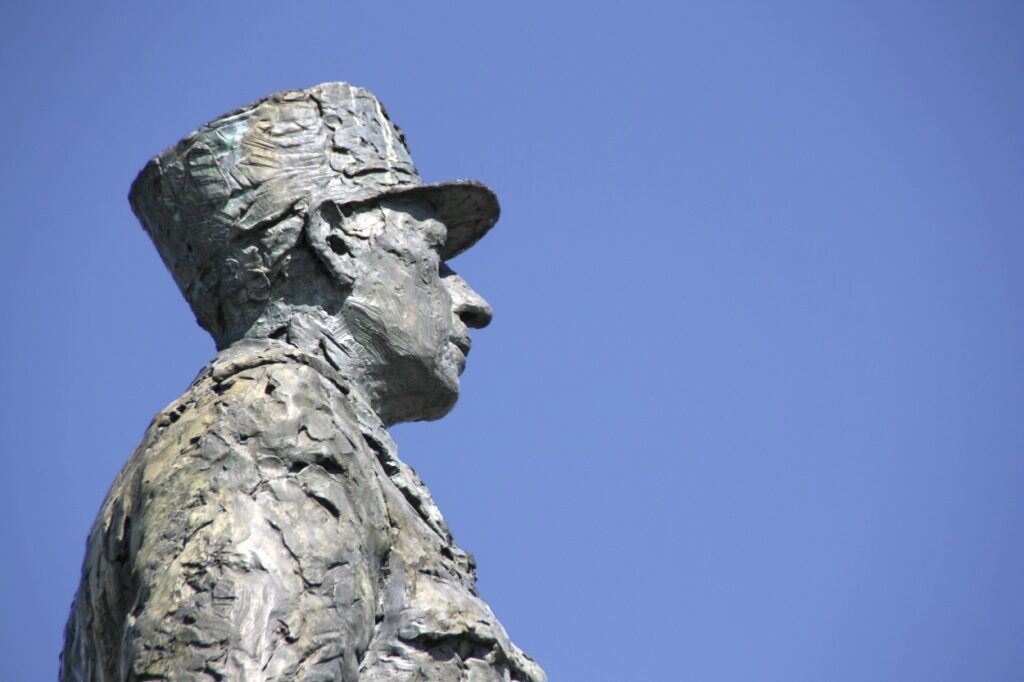Charles de Gaulle famously said, “l’intendance suivra”. By this he meant that his role as leader was to set the vision or direction and other peoples’ roles were to sort out all the necessary activities required to turn it into a reality.
De Gaulle was indisputably one of the great leaders of the 20th century bringing France to success from the most difficult of situations on more than one occasion, yet the sentiment he expresses would be almost unthinkable for a contemporary leader: ‘implementation is someone else’s problem’. Perhaps he was right?
Are we, in the 21st century, overly concerned with buy-in, engagement, developing commitment and building support?
Are we incapacitating our leaders with unreal expectations? Is the breadth of responsibility a senior leader carries unrealistic – and thereby disempowering?
Heroic leaders
In 2013, Ashridge gathered the views of over 200 managers about the changing nature of leadership. The overriding sentiment was around a paradoxical need for, and rejection of, heroic leaders.
We concluded that heroism is still important but the nature of heroism has changed. Today’s heroes cannot be the slightly detached ‘ruling class’ perhaps represented by de Gaulle.
Expectations of ‘followers’ have changed: they expect to be treated more equally, to be more empowered, to be given greater freedom, to have more autonomy.
They expect their leaders to have some of the same heroic qualities but also to be more accessible, more connected, and perhaps more human. In today’s digital world of instantly available information, it is very difficult for a leader to maintain a carefully managed image.
If leaders are burdened with unrealistic expectations, the responsibility for this lies with both leaders and followers.
Leaders are more rewarded now than at any point in the last 100 years, however the trappings of success isolate them from many of their followers.
Are we, in the 21st century, overly concerned with buy-in, engagement, developing commitment and building support?
With this comes the risk of believing they can make everything succeed (or everything fail): a sense of omnipotence described by David Owen as ‘Hubris Syndrome’. In this case leaders can lose touch with the reality of the changes they are leading.
Today’s heroes cannot be the slightly detached ‘ruling class’ perhaps represented by de Gaulle.
And so we have a classic dilemma: the overriding sense of expectation drives leaders into behaviors which appear like overconfidence which others find disengaging, while in reality this may actually be a flight from the scale of (perhaps self-imposed) responsibilities.
We believe that for organizational change to succeed leaders need to do two basic things:
- To be realistic about what they (individually) can achieve:
To downplay any expectations that they are some kind of super-hero who has all the answers in their back pocket, or that they can personally drive through the changes using a combination of willpower and magic.
- To engage those around them in thinking about what needs to change and how to change it:
They need to create a desire for change amongst a significant number of people if it is to become a reality. They need a team of people who will have the resilience to keep going when things get difficult and the empathy to engage others in developing momentum.
Followers expect their leaders to have heroic qualities but also to be more accessible.
It is this combination of being clear and unremitting about what needs to be achieved, and willing to accept their own limits and frailties, and be realistic about their individual potential to make it happen that is the key to success.
In many ways today’s leaders need to combine De Gaulle’s sense of direction and ambition with a humility that allows others to engage with them, want to support them and thereby be committed to a shared success.
Charles de Gaulle famously said, “l’intendance suivra”. By this he meant that his role as leader was to set the vision or direction and other peoples’ roles were to sort out all the necessary activities required to turn it into a reality.
De Gaulle was indisputably one of the great leaders of the 20th century bringing France to success from the most difficult of situations on more than one occasion, yet the sentiment he expresses would be almost unthinkable for a contemporary leader: ‘implementation is someone else’s problem’. Perhaps he was right?
Are we, in the 21st century, overly concerned with buy-in, engagement, developing commitment and building support?
Are we incapacitating our leaders with unreal expectations? Is the breadth of responsibility a senior leader carries unrealistic – and thereby disempowering?
Heroic leaders
In 2013, Ashridge gathered the views of over 200 managers about the changing nature of leadership. The overriding sentiment was around a paradoxical need for, and rejection of, heroic leaders.
We concluded that heroism is still important but the nature of heroism has changed. Today’s heroes cannot be the slightly detached ‘ruling class’ perhaps represented by de Gaulle.
Expectations of ‘followers’ have changed: they expect to be treated more equally, to be more empowered, to be given greater freedom, to have more autonomy.
They expect their leaders to have some of the same heroic qualities but also to be more accessible, more connected, and perhaps more human. In today’s digital world of instantly available information, it is very difficult for a leader to maintain a carefully managed image.
If leaders are burdened with unrealistic expectations, the responsibility for this lies with both leaders and followers.
Leaders are more rewarded now than at any point in the last 100 years, however the trappings of success isolate them from many of their followers.
Are we, in the 21st century, overly concerned with buy-in, engagement, developing commitment and building support?
With this comes the risk of believing they can make everything succeed (or everything fail): a sense of omnipotence described by David Owen as ‘Hubris Syndrome’. In this case leaders can lose touch with the reality of the changes they are leading.
Today’s heroes cannot be the slightly detached ‘ruling class’ perhaps represented by de Gaulle.
And so we have a classic dilemma: the overriding sense of expectation drives leaders into behaviors which appear like overconfidence which others find disengaging, while in reality this may actually be a flight from the scale of (perhaps self-imposed) responsibilities.
We believe that for organizational change to succeed leaders need to do two basic things:
- To be realistic about what they (individually) can achieve:
To downplay any expectations that they are some kind of super-hero who has all the answers in their back pocket, or that they can personally drive through the changes using a combination of willpower and magic.
- To engage those around them in thinking about what needs to change and how to change it:
They need to create a desire for change amongst a significant number of people if it is to become a reality. They need a team of people who will have the resilience to keep going when things get difficult and the empathy to engage others in developing momentum.
Followers expect their leaders to have heroic qualities but also to be more accessible.
It is this combination of being clear and unremitting about what needs to be achieved, and willing to accept their own limits and frailties, and be realistic about their individual potential to make it happen that is the key to success.
In many ways today’s leaders need to combine De Gaulle’s sense of direction and ambition with a humility that allows others to engage with them, want to support them and thereby be committed to a shared success.






3 Responses
This was a great read, Colin,
This was a great read, Colin, thanks. It makes me reflect on my own role as a leader as well as other leaders within my organisation. I wish this message about humility was more widely discussed and accepted.
There are always a lot of
There are always a lot of risks that come with leading change. If you’re not prepared to face the backlash when you propose radical solutions, then you have to tread carefully! Like for my self storage service, we wanted to pioneer portable storage but there was a risk that it wouldn’t be well received. It was a scary moment for us to take the leap!
There are so many changes
There are so many changes that we need to adhere to today with rising customer expectations. Every business differs in the type of practices that they follow but they all lead to one goal — ace customer service. This strong desire to want to be the best for our customers somehow make us become blind towards the other milestones that we have yet to achieve but strongly need to.